#John Drinkwater
Text
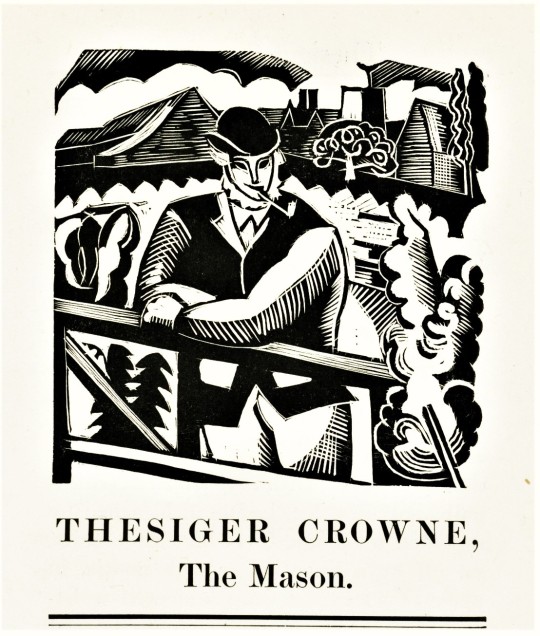


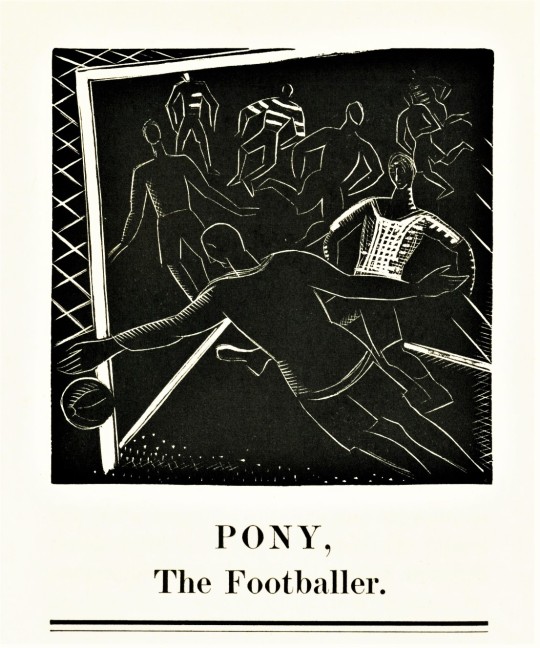

Wood Engraving Wednesday
PAUL NASH
British painter, war artist, designer, illustrator, and wood engraver Paul Nash (1889-1946) was influential in the development of modern English art and was a prominent member of the Society of Wood Engravers that was co-founded by his younger brother John Nash in 1920.
In the 1920s, he began to produce wood-engraved illustrations for works by noted English authors, including this collection of character studies, Cotswold Characters by English poet and playwright John Drinkwater (1882-1937), published in New Haven, Connecticut, by Yale University Press in 1921. These were Nash's first set of wood engravings to be published as book illustrations.
Besides publishing his first wood-engraved book illustrations, 1921 was a very significant year in Nash's short life. In that year, Nash's close friend, the artist and designer Claud Lovat Fraser, died; Nash displayed his textile designs at an exhibition at Heal's in London; and he began exhibiting a series of health issues related to war trauma that we would call PTSD today, which occasioned his move to Dymchurch in southeast England for his health, where he would produce an important series of seawall and seascape paintings.
Our copy of Cotswold Characters is another donation from the estate of our late friend Dennis Bayuzick.
View other posts related to Paul Nash.
View other books from the collection of Dennis Bayuzick.
View more posts with wood engravings!
#Wood Engraving Wednesday#wood engravings#wood engravers#Paul Nash#Cotswold Characters#John Drinkwater#Yale University Press#Dennis Bayuzick
36 notes
·
View notes
Text
Moonlit Apples
by John Drinkwater
At the top of the house the apples are laid in rows,
And the skylight lets the moonlit in, and those
Apples are deep-sea apples of green. There goes
A cloud on the moon in the autumn night.
A mouse in the wainscot scratches, and scratches, and then
There is no sound at the top of the house of men
Or mice; and the cloud is blown, and the moon again
Dapples the apples with deep-sea light.
They are lying in rows there, under the gloomy beams;
On the sagging floor; they gather the silver streams
Out of the moon, those moonlit apples of dreams,
And quiet is the steep stair under.
In the corridors under there is nothing but sleep.
And stiller than ever on orchard boughs they keep
Tryst with the moon, and deep is the silence, deep
On moon-washed apples of wonder.
3 notes
·
View notes
Video
youtube
Moonlit Apples by John Drinkwater #JohnDrinkwater #MoonlitApples #Poetry #poetrycommunity #poetrylovers
0 notes
Text
DVD review: “All Creatures Great and Small” (1978-1990)
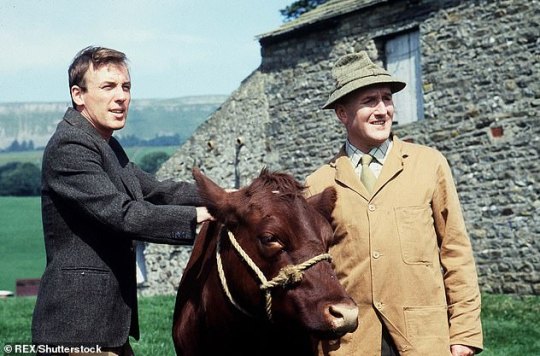
View On WordPress
#All Creatures Great and Small#All Creatures Great and Small dvd#All Creatures Great and Small dvd review#Carol Drinkwater#Christopher Timothy#dvd review#James Herriot#John McGlynn#Lynda Bellingham#Margaretta Scott#Mary Hignett#Peter Davison#Robert Hardy#television
1 note
·
View note
Photo
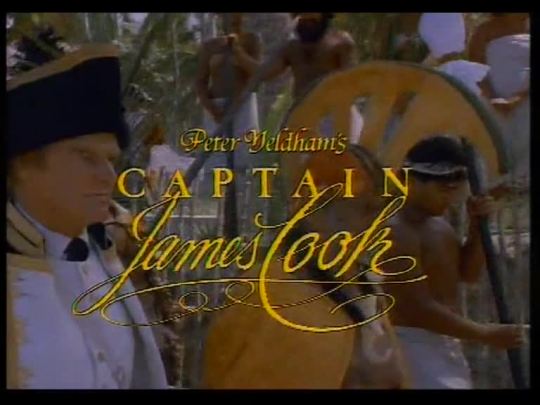

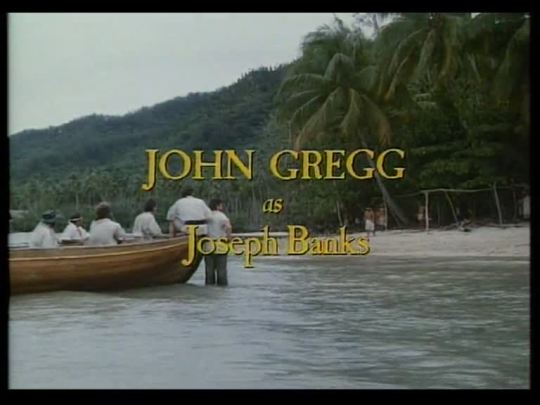
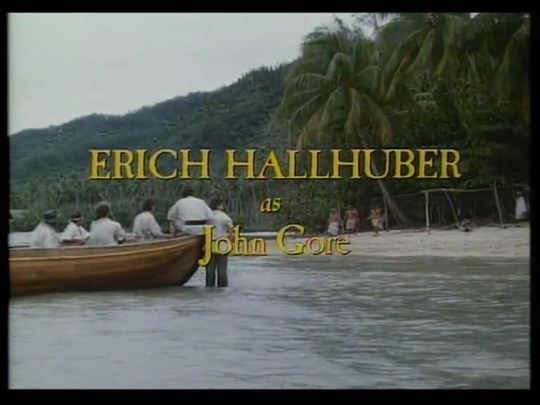

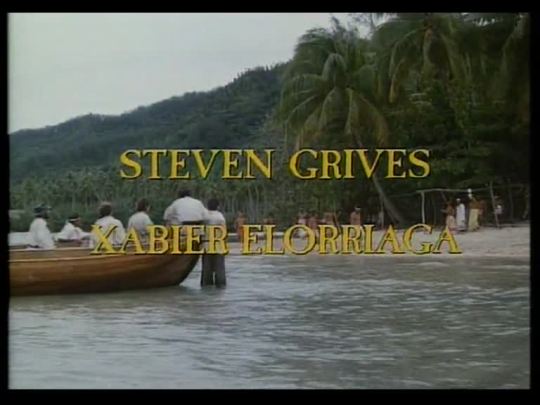


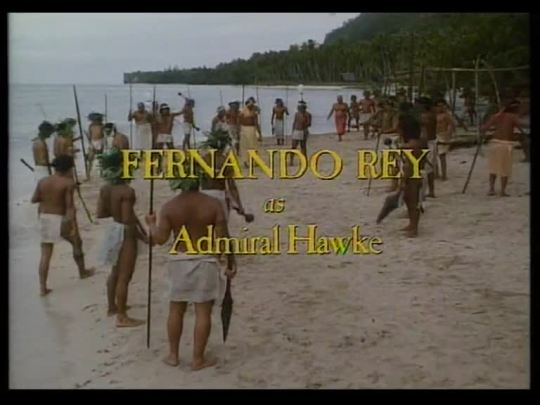
Captain James Cook - ABC (Aus) - October 6, 1987
Biography / Miniseries (4 episodes)
Running Time: 120 minutes episode
Stars:
Keith Michell - James Cook
John Gregg - Joseph Banks
Erich Hallhuber - Lt. John Gore
Jacques Penot as Charles Clerke
Peter Carroll as Solander
Xabier Elorriaga as Sandwich
Maurice Risch as Monkhouse
Barry Quin - Lt. Hicks
Fernando Rey - Admiral Hawke
Carol Drinkwater - Elizabeth Cook
Geoff Morrell - Perry
#Captain James Cook#TV#ABC#1980's#Biography#Keith Michell#John Gregg#Erich Hallhuber#Jacques Penot#Peter Carrol#Carol Drinkwater#Fernando Rey
1 note
·
View note
Text
Book Recs Wanted!
I have recently noticed that I'm drawn to the sub-genre of fantasy books that involve a person, or group of people, who secretly discover a huge magical secret that they do not fully understand and will never fully understand. So yes, fantasy books, but mostly 'other world' books and whatever the opposite of books with 'a good magic system' are. I know some people are into that, but I always avoid books where the magic makes sense, I like it to be confusing and oblique and mysterious. Ditto books with a grizzled anti-hero protagonist, not interested.
Examples of this I've enjoyed include:
The Magician's Nephew by CS Lewis - where Uncle Andrew has learned a few shreds of information from an elderly relative about magic. He then experiments and plots for years and finds the doorway to the wood between the worlds without having any real knowledge of what he has found or what to do with his discovery and gains no benefit from it.
Piranesi by Susanna Clarke - (spoiler), where a group of academics and hangers-on under the thrall of an outsider anthropologist find the way into a world hinted at in pre-historic texts. I love how the implications of this discovery are so huge, but those that can visit this world are incapable of fully exploring or sharing their discovery because of their competitive and sadistic natures. Even further worlds are hinted at but nobody visits them.
[Limited bits of] The Magicians by Lev Grossman - I haven't been able to re-read these books since they came out because I find many of the characters so unbearable, however, those sections where the students who fail to get into the college try to piece together magic on their own, or where the Chatwin children find their way into Fillory, or particularly where Quentin attempts to create his own world at the very end, are very compelling.
[Bits of] Fairy Tale by Stephen King - I found the fantasy world itself fairly irritating, but the way into it was great, and the discussion of how the fantasy world would likely be exploited if the knowledge was spread further was something I hadn't seen before.
Little, Big by John Crowley - I love how the existence of Faerie is taken as a matter of fact by the Drinkwater family, but there's no rhyme or reason to how it 'works'. It's unclear what exactly is going on half the time and all is enjoyably dream-like.
I also intent to give the Gormenghast books and Mordew a go soon, as they seem up my alley, and I think I've read all the Lovecraft stuff in this vein. I always liked the Lovecraftian bits of the Discworld book Moving Pictures too, which was my favourite as a kid- I like when the magical discovery gets too real and everyone just runs away, realising it's better left alone.
Does anyone else enjoy these tropes and have a book or two to recommend?
145 notes
·
View notes
Photo
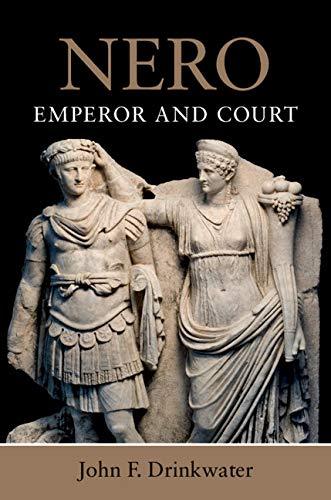
Nero: Emperor and Court
Of the many emperors of Rome, there is one who has been given considerable attention and is often portrayed in a negative light. In Nero: Emperor and Court, John F. Drinkwater challenges the traditional notions attributed to Nero and offers a revisionist approach to studying the emperor's family and personal histories. This book provides new research on Nero's life and brings to discourse the reasoning behind the common evil stereotypes attributed to Nero.
Continue reading...
28 notes
·
View notes
Note
Resonance Frequency please? 👀
For this WIP ask meme: https://www.tumblr.com/figureofdismay/740397915629125632/wip-meme-stolen-from-stripedroseandsketchpads-and
welp, I got sucked down a tangent trying to math out some of a fictitious Scully family tree + outline timeline shortly after sitting down to answer this one and it's now several hours later, oops 😅
I don't have anything coherent enough to share yet, just scene fragment here and there in my outline but in a way this is my specialest little ridiculous darling of a fic, my favorite project i've got on the go at the moment
Are you familiar at all with the John Crowley novel Little, Big? This one definitely shares some thematic space with that one. Kind of the idea that the Scully family, like the Drinkwater family is (or some of them are, more likely in the women) blessed/cursed with particular ~abilities and senses, which also come with certain responsibilities, to follow a certain path, though they never quite know what that path is until they realize they've been on it.
In the show canon Scully shows perceptive/psychic/premonitory abilities on multiple occasions, In Beyond The Sea both the visitation of her father's spirit upon his death, and her ability to 'see' and make sense of Boggs's vision and find the clues in a location that other agents had been over multiple time ~as if drawn there, and the sort of combined channeling/visionary experiences she has with Boggs -- Mulder thinks Boggs is faking the whole time and Scully doesn't because imo she's being pulled along into these psychic feelings. In One Breath she has her near death experience on the lake and is able to communicated to Melissa -- also shown to have sensitivities -- and to Mulder. In Blessing Way/Anasazi Scully has a visitation from Mulder when he's having his own near death experience. In Clyde Bruckman's Final Repose she "figures out" who the killer is by looking at a tarot card and handling a bit of lace that was stuck to the killer's clothes (somehow the fact that she 'saw' the killer is never mentioned again lol), and again she is able to interpret Bruckman's visions better than anyone else involved in the case while claiming she doesn't believe in any of it. In Revelations she acts a chosen protector to a boy who is touched with stigmata and has visions of his own, and agrees that she is fulfilling a fated, sacred role. She has visions in Elgy, a case where Mulder believes the visions are harbingers of death, and while this is deep in the cancer arc and Scully and the audience both believe this means she's getting sicker, a part of me wonders if this is yet more of her sympathetic abilities at play, because obviously she is saved at the eleventh hour from the cancer, and Elegy comes a couple months before things get really bad and also the other people who had the visions were dead within hours, thus the whole 'immediate harbinger' thing. Then there's the whole Sixth Extinction/Amor Fati sacred alien text on a crashed spaceship and visitation from Albert Holstein in a coma thing, which I suppose we're supposed to attribute to the ship but again I choose to see it as Scully's abilities.
So. That's canon but the fic idea is to turn those abilities up and make it a consistent backbone of Scully's life. Say that it's a powerful overwhelming thing that frightens her, so instead of playing with crystals and tarot cards and tea leaves and dream reading with Melissa, she tries to shut it out and doesn't want to talk about it. She doesn't want to sound crazy and she doesn't want to feel out of control. She studies sciences and medicine trying to make sense of the world and square it with what she senses. She's drawn to surgery specialties and then pathology because the extra psychic abilities make dealing with living patients impossibly overwhelming, but she can't explain it that way to her conservative Catholic mother and her Naval Captain father.
Also her childhood 'imaginary friend' was the ghost of her great grandfather, which was a catalyzing event for her developing skepticism of her own perceptions.
In her work on the X files, she can tell the hoaxes from the not hoaxes instinctively, but good luck getting her to talk about that directly! Even with Mulder, who theoretically would believe any 'sense' she had. Though, in practice Mulder *isn't* that much of a believer beyond the areas of aliens "experiences" and cover-ups or cryptids.
The canon divergence begins with Beyond the Sea, where I posit that a Scully with stronger "powers" tries again and harder to talk with Mulder about her experience with Boggs. Of course Mulder keeps getting hung up on "If you know and sense these things, why don't you believe me and my things??" which is a huge stumbling block. And of course Scully wants to keep any of her personal 'impressions' out of any official X-files documentation so as not to become a curiosity (another point of ongoing conflict because Mulder constantly puts himself and his family in the middle of the files and while he mostly understands that she doesn't want to become a laughingstock, he also doesn't totally Get It). Mulder wants to know all about it and to talk all about it but he struggles with the contradiction of this very literal scientist successfully middle class partner having these abilities instead of some ~mutant~ oddity societal outlier eccentric from one of his files, meanwhile Scully is desperate for him not to treat her differently over it. Or like Counselor Troi on the Enterprise, an 'empathic' short-cut to the answers, because it's not as predictable/reliable/literal as that for her.
BUT it does open up a stronger dialogue about her belief-unbelief spectrum with Mulder. I feel like I can get away with putting them more on the same page about the alien conspiracy stuff. A broader base of things they can agree are Likely-The-Case even though Scully still wants something quantifiable before admitting it to the higher-ups. This whole AU came about partly because I'm tired of the way show itself kept putting Scully in the role of the tropey nagging, no-fun rational wife, to the point where her denial actually became irrational. Giving her Abilities + Belief but also a good reason not to want to talk about it feels like a good compromise.
And greater prescience might lead them away from some of the bigger pitfalls, and I'm trying to decide at the moment how much and how quickly I can veer them away from canon. Like, does it mean she still gets abducted? or do they do more about Duane Barry? What about Melissa's death, can she foresee that? Or is seeing not enough to deter inevitability? Would it make a difference in their argument about Diana?
I have some decisions to make here honestly. I have 2 versions of the potential outline-ish shape, one where the abduction happens and one where it doesn't. I'm leaning towards the one where it doesn't and some other things happen, but I'm not sure if that feels too much like "cheating" and "overindulging" so I'm a bit stuck 😅😵💫. Opinions on that one would be welcome lol
#fic writing#my fic#fic: resonance frequency#msr#txf#character theory: scully#AUs i need in my life#fic writing problems#ask games
13 notes
·
View notes
Note
Know any good sources on Celtic (specifically Gaulish practices)? I know it’s not your area, but you seem like someone who might know some people who dabble in that sort of stuff. The area I live in has some celtic archeological sites, but sadly not much is known about the local religion or culture. I am trying to put together a Romano-Celtic hearth cult, but it’s difficult finding practices and deities that feel right.
Gaul is a larger Celtic area of Western Europe (modern-day France and parts of modern-day Belgium, Germany, and Northern Italy). I say this because the Celts, when invaded by Rome, took in a lot of Roman religion including Hellenic and (rarely) Kemetic beliefs as well. When the Celts did this, so did the Gauls.
If it helps at all, the specifics you're looking into is called Gallo-Roman, which is part of the larger Romano-Celtic area.
This selective acculturation manifested in several ways. One of the main ways we see this is with the melding of Greco-Roman deities with Gaulish (Celtic) deities. Gaulish epithets for Roman gods (Jupiter Poeninus) and Roman epithets for Gaulish gods (Lenus Mars). Roman gods were given Gaulish god partners (Mercury and Rosmerta & Apollo and Sirona). Towards the east of the Gauls, many mysteries were formed, including one for the Greek hero Orpheus, the Iranian (or Persian) god Mithras, and the Egyptian goddess Isis. In other words, a whole lot of syncretism.
When it came to the Gauls (and the Celts overall) a main part of their belief system was the heavy use of animal imagery. More specifically, zoomorphic deities. However, we see a lot more human-looking representations of the gods because the Romans (and Greeks) weren't too keen on the idea (see Greco-Egyptian).
As for specifically Gallo-Roman hearth religious beliefs, the Lares (Lar singular) is a good place to start. They're the equivalent of Agathos Daimon in Greek religion (Hellenism). Essentially, they're personal household deities that are connected to the hearth.
A majority of the information we have about the Gaelic culture and the eventual melding of the Gallo-Roman culture stems from two sources: artifacts and Julius Ceasar, who wrote all about in what we now call the "Commentarii de Bello Gallico". The gods that he mentions the Gauls worship (like Jupiter, Mercury, Mars, and Minerva) aren't really the Roman gods that the Gauls are worshipping at that time but rather the closest thing Ceasar can connect. For example, Caesar may say that the Gauls worshipped Mars, when in reality they were worshipping Lenus, a healing god that quickly became associated with Mars because of Caesar and the Roman Empire. However, not all of them were caught. Gobannus is the most well-known example we have, with him being the equivalent to the Roman god Vulcan or the Greek god Hephaestus and yet Caesar makes no comment on the Gaulish god.
One other thing, the specific time we are taking a look at was prior to the overtaking by the Anglos, Saxons, and Jutes (aka pre-Anglo-Saxon times). Because of this, Germanic (Norse) gods weren't known to these people yet. Odin, Thor, and Freyja were unknown to them at this point in time.
Other than that, the last thing I can give to you are articles and books that I stumbled upon that may pique your interest. I do recommend a couple of Wikipedia links, but just know that I recommend using Wikipedia as a jumping-off point. Hope this helps! :^)
Becoming Roman: the origins of provincial civilization in Gaul -- Greg Woolf
https://archive.org/details/becomingromanori0000wool
The gods of the Celts -- Miranda Green
https://archive.org/details/godsofceltsar00mira
Gallo-Roman Religious Sculptures -- A.N. Newell
https://www.jstor.org/stable/640758
Fifth-Century Gaul: A Crisis of Identity? -- John Drinkwater & Elton Hugh
https://www.loc.gov/catdir/samples/cam031/91018375.pdf
Caesar's Commentaries on the Gallic War: literally translated -- Frederick Holland Dewey, A.B.
https://archive.org/details/caesarscommentar07caes
Category:Gaulish gods -- Wikipedia
https://en.wikipedia.org/wiki/Category:Gaulish_gods
Category:Gaulish goddesses -- Wikipedia
https://en.wikipedia.org/wiki/Category:Gaulish_goddesses
sources:
https://bmcr.brynmawr.edu/1999/1999.10.34/
http://www.deomercurio.be/en/dii.html
https://www.britannica.com/topic/Celtic-religion/The-Celtic-gods
https://en.wikipedia.org/wiki/Lares
https://www.britannica.com/topic/Lar-Roman-deities
https://en.wikipedia.org/wiki/Gallo-Roman_culture
https://en.wikipedia.org/wiki/Gallo-Roman_religion
#ask#witch#witchcraft#witchblr#pagan#celtic#gaulish#roman#celtic deities#celtic pantheon#gaulish deities#gaulish pantheon#roman pantheon#roman gods#ancient rome#gallo-roman#romano-britain#romano-celtic#hearth
37 notes
·
View notes
Text
Where historians predominantly schooled in ideas of the Tudor state point to the ‘tribal politics’ (John Guy) of bellicose Scottish noblemen with which they allege Mary had to contend, we need instead research that more rigorously tests whether Mary should have been able to use – as her son did – those nobles’ cooperation, and the extensive kinship networks that they controlled. Here Wormald’s seminal book Court, Kirk and Community is essential reading. No Tudor-based historian has fully understood yet the implications of this specifically Scottish background for any assessment of Mary’s reign, or the significance of Keith Brown’s work on the nobles’ acquiescence in the (eventual) suppression of the feud in James VI’s reign. It has been all too easily assumed that the challenge that noble power and faction presented meant that it was inevitable Mary would fail when confronted with it. Wormald knew this interpretation was flawed, and her judgement of Mary is predicated on an understanding of the potential effectiveness of personal monarchy dependent on a cooperative nobility.
What Now? Afterward by Anna Drinkwater, Mary Queen of Scots, A Study In Fsilure
14 notes
·
View notes
Text
I love reading about history, because while it's a very dry and straightforward field, historians love slipping in small bits of humor where they can.
In Nero: Emperor and Court, John Drinkwater notes that Dictatorship in Ancient Rome was considered an emergency measure and (as Julius Ceaser found out), a permanent dictatorship was wholly unacceptable.
Love a good bit of understatement, don't you?
3 notes
·
View notes
Text










Happy Birthday to Billie Joe Armstrong He is the lead vocalist, guitarist, and primary songwriter for Green Day, which he co-founded with Mike Dirnt in 1987. He is also a guitarist and vocalist for the punk rock band Pinhead Gunpowder, and provides lead vocals for Green Day's side projects Foxboro Hot Tubs, The Network, The Longshot and The Coverups. Armstrong has been considered by critics as one of the greatest punk rock guitarists of all time.
Billie Joe turned 51 today.
Photo Credits:
1. Nigel Crane/Redferns
2. Mike Pont/WireImage
3. Tim Mosenfelder/Getty Images.
4. Tim Mosenfelder/Getty Images
5. Paul Drinkwater/NBCU Photo Bank/NBCUniversal via Getty Images 6. © Matthias Clamer/CORBIS OUTLINE/Corbis via Getty Images
7. Matthias Clamer/Corbis via Getty Images
8. Stephen Lovekin/WireImage
9. John Shearer/WireImage
10. Nigel Crane/Redferns
8 notes
·
View notes
Text
HOW THE ENGLAND FOOTBALL TEAM WENT FROM CHOCKERS TO CHALLENGERS IN 5 YEARS
A few years back, the English football team was considered a joke by many of the fans and the pundits. This occurred due to the disastrous performance of the team, not just in Internal fixtures, but in the major tournaments as well. The standard and the quality of English football had been deteriorating since the start of the century. Since 2000, there have been several low points in English football, with each being lower than the last one like not qualifying for the Euros in 2008, early elimination in the 2010 world cup and the 2014 world cup, just to name a few. In the latter, they scored just two goals, secured a solitary point in 3 games, and got knocked out in the group stages. But the moment when England hit rock bottom was in the 2016 Euro tournament.
When it came to the qualifiers of the 2016 Euro��s, there was optimism among the fans. This was due to their performance in the Qualifiers where they topped their group by winning all 10 games, scoring 28 goals, and only conceding 3. Another reason why the qualifiers was a big plus for England was because of the introduction of fresh faces such as Danny Drinkwater, Harry Kane, Jamie Vardy and the performances of John Stones, Danny Rose and Keiran Trippier in defense which resulted in England conceding only 3 goals in 10 games in the qualification stages.
But their performance in Euro 2016 of one of their worst in their entire tournament history. The finished second in a group consisting of Wales, Russia, and Slovakia, three teams who England should have beaten comfortably on paper. Instead, they drew to Russia, just got past Wales and drew 0-0 to Slovakia. There was optimism about England reaching the quarter finals as they had to face Iceland in the round of 16. But their tournament got worse as they lost 2-1 and crashed out of the Euro’s. The backlash from this tournament was heavy as several players such Raheem Sterling and Harry Kane were criticized for their poor performance and Roy Hodgson had resigned after a 4-year reign.
There were several theories formed by fans and pundits as to the reason for the poor performance of England in major tournaments. The problems were made clear from their Euro 2016 debacle. Many people felt that the team selection was wrong and people who were in the team did not deserve their place in the squad. Players such as Danny Drinkwater was left out of the Euro squad after a good performance in the league leading to a title win for Leicester city. The inclusion of Jack Wilshere had not gone down well amongst the fans either as he spent 8 months of the 2015/16 on the sidelines with an injury and had played only 141 minutes in the entire season. England had appointed Sam Allardyce as the new England manager, but he was sacked after one game after he was charged with corruption.
England appointed Gareth Southgate as their caretaker manager, following the sacking of Sam Allardyce and was made the permanent manager on 15th November 2016. This did not make England fans optimistic. The reason was because he had previously managed Middlesbrough who got relegated and he was the coach of the England under 21 team who had not been performing well under him.
Under him, they had performed well in the World cup 2018 qualifiers finishing toppers of their group with 8 wins and 2 draws out of 10 games and conceding only 3 goals. The pundits and fans were not excited about their chances in the world cup.
In the tournament, they won all 2 out 3 group games, losing to Belgium 1-0. They won in the round of 16 against Columbia in the penalty shootout and won the quarter finals against Sweden. When it came to the semifinals, England got the lead in the 5th minute through Kieran Trippier but eventually lost 2-1 to Croatia who went on to lose in the finals to France. England finished the campaign in 4th place after they lost their 3rd place playoff game against Belgium 2-0. Despite losing in the semifinal, players like Harry Kane, Kieran Trippier and Jordan Pickford drew a lot of praise for their performance in the tournament with Harry Kane winning the golden boot.
Following this their next stage of preparation was for the 2020 Euro. In the qualifiers, they had a strong performance, topping the group with 7 wins out of 8, conceding only six goals but scoring 37 goals. Fans and pundits lauded Gareth Southgate for giving chances to players who did not just play for a top six club. Players like Declan Rice, Kalvin Phillips and Jack Grealish, Dominic Calvert Lewin and Conor Coady were given their chance to shine in the qualifiers. Southgate also gave chances to youngsters such as Bukayo Saka, Jude Bellingham and Jadon Sancho were given chances in the tournament.
Going into the tournament they had an squad with an average age of a little over 25. They had a mix of experience and talented youngsters. They topped their group in Euro, won in the round of 16 against Germany, brushed aside Ukraine 4-0 in the Quarter finals, won 2-1 against Denmark in extra time through a Harry Kane goal in the 104th minute. In the final against Italy, they went ahead inside two minutes through Luke Shaw but eventually conceded from a corner which was scored by Leonardo Bonucci. The game eventually went into penalties. Pickford had made two saves in the shootout, but Italy cliched the final after misses from Marcus Rashford, Jadon Sancho and Bukayo Saka.
England finished the tournament as runners up, but there was a lot of appreciation from the fans and the pundits for the performance of the manager and team players, especially the youngsters. They were a laughing stock in the 2016 Euro and nearly won the 2020 Euro.
There has been steady progress that has been taking place in English football and Gareth Southgate deserves a lot of the credit for much tough decisions and giving chances to player to shine. The Euros are taking place in Germany this year and Gareth Southgate has a chance to take the England team one step further and guide them to the title before leaving his job as England Coach. England go into this tournament with a little bit of negativity, considering their performances against the big teams in the last 2 years, but this tournament is a chance for them to but these negative talks to rest.
1 note
·
View note
Text
0 notes
Text
Cappelle Calling - 7 augustus 2023
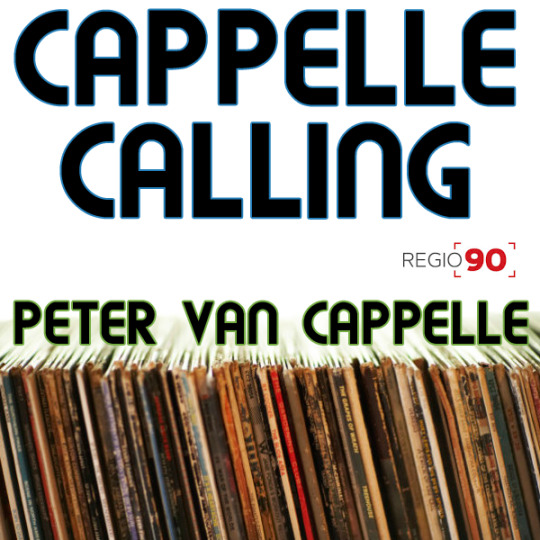
De LP van de Week was een album dat afgelopen week precies 50 jaar geleden verscheen: 'Innervisions' van Stevie Wonder. Ik opende de uitzending met een toepasselijke plaat naar aanleiding van de toestand met het drinkwater in Doorn.
Terugluisteren kan hier.
Dit was de playlist:
Uur 1:
Melissa Etheridge - Bring Me Some Water (1988)
James Smith - Common People (2023)
Kula Shaker - Hey Dude (1996)
Stevie Wonder - Too High (1973) (LP van de Week)
The Kinks - Lola (1970)
La Belle Époque feat. Camiel Meiresonne - Part Time Peace Of Mind (2023)
Queen - Save Me (1980)
Incognito - Don't You Worry 'Bout A Thing (1992) (DisCovered)
The Beatles - Nowhere Man (1965)
Olivia Newton-John - Hopelessly Devoted To You (1978) (Filmplaat - uit 'Grease' )
Kristin Hersh & Michael Stipe - Your Ghost (1994)
Stevie Wonder - Living For The City (1973) (LP van de Week)
Uur 2:
Iron Maiden - Can I Play With Madness? (1988)
Dawn Brothers & DeWolff - Neighbor (2023)
Stevie Wonder - Higher Ground (1973) (LP van de Week)
Miles Kane - One Man Band (2023)
Stevie Wonder - Don't You Worry 'Bout A Thing (1973) (DisCovered)
The Indien - Sleep When I'm With You (2023)
Placebo ft. David Bowie - Without You I'm Nothing (1999)
Wilco - Evicted (2023)
Stevie Wonder - He's Misstra Know-It-All (1973) (LP van de Week)
Bertolf - Another Day (2023)
The Isley Brothers - The Highways Of My Life (1973)
Joni Mitchell - Both Sides Now (live at Newport, 2022)

Cappelle Calling is iedere maandagavond van 20:00 t/m 22:00 te horen op Radio 90FM. Iedere woensdagmiddag wordt de uitzending herhaald van 18:00 tot 20:00. Suggesties voor DisCovered of De Filmplaat zijn welkom via de Facebookpagina van het programma of via [email protected].
0 notes
